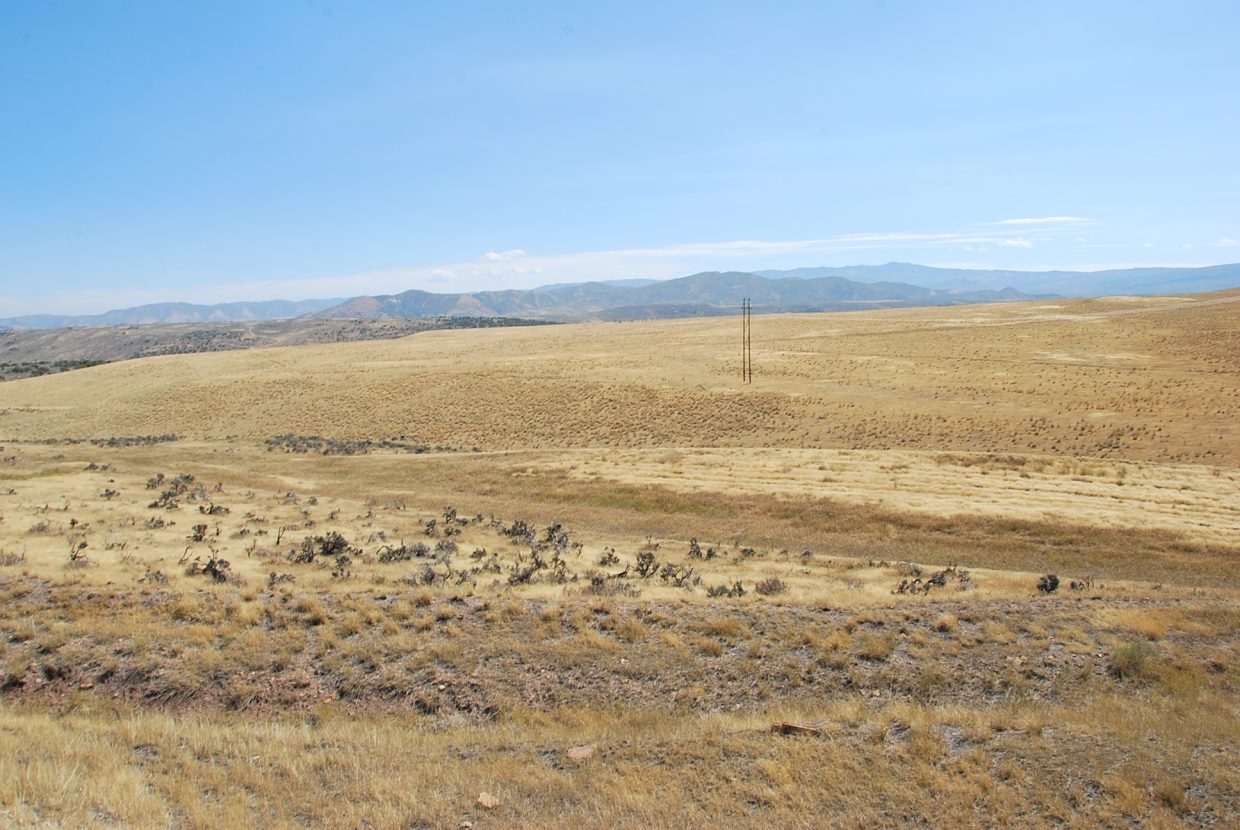Colorado's Colowyo Mine Looks Toward Expansion, Reclamation

November 3, 2018 - Give and take is the name of the game at Colorado's Colowyo Mine. The mine is getting ready to start work at a new pit while restoring previously used lands.
Colowyo Mine Manager Chris McCourt said the mine has been recognized by both federal and state environmental agencies for its attention to detail in its reclamation efforts. Reclamation is the process whereby trees, grass, vegetation, and soil are restored in areas where mining took place.

Colowyo's most recent completed reclamation site. Every little detail was put back the way it was according to Colowyo Mine Manager Chris McCourt.
Photo by David Tan
The mine has reclaimed a total of 1,181 acres of land so far, McCourt said, and Tri-State helped reclaim 630 acres when the company acquired the mine in 2011. They are currently working to reclaim the South Taylor Pit, efforts that will continue through 2029. The pit still holds about four years worth of coal.
“Reclamation is a long process,” McCourt said. “We start planning the reclamation process as soon as we start digging the pit. We are constantly thinking of how to start the process as we dig.”
The goal, he added, is to restore the land to its original condition. Under Colorado law, reclamation needs to be done within 10 years after mining begins. The mine also works with the state to try and relocate sage grouse and other native species when a new mining location is about to open.
New Project
Colowyo is in the process of beginning mining operations at the Collom Pit. Current efforts are focused on laying the foundations and moving machinery to the new location, McCourt said. This foundation includes building paved roads to move equipment and simplify transportation, establishing a steady power supply, and creating storage areas.
.png)
The South Taylor pit is one of Colowyo Mine's current active coal mining site.
Photo by David Tan
He said a massive coal digging shovel must be moved to the new pit. The shovel is being transported on to a platform that only moves about 1 mile per hour, meaning days are needed to get the shovel to the new location.
“The shovel being moved is kind of a major event for most miners,” McCourt said. “Not many miners in their careers get to see it. It is almost a once-in-a-lifetime-event, in a way.”
The opening of a new pit also means work for local contractors. McCourt said the mine has hired about 200 local contractors to help build the foundation. He estimated the mine spends about $200 million per year on hiring contractors, and about $12 million in tax revenue is generated from contractor work, alone.
Infrastructure construction began in April 2017 and will be completed in October, McCourt added. The first coal is scheduled to be produced in January. The boxcut will be 650 feet deep, and the Collom Project will allow Colowyo access to coal leases issued by the Bureau of Land Management, as well as other state and private leases.
McCourt estimated about 89 million tons of coal will be produced during the project’s life. The Collom has 21 coal streams to be mined, ranging from two to 12 feet in thickness. The Collom Project will extend Colowyo operations for another 35 years.
“The project will help sustain 220 jobs at Colowyo Mine well into the future,” McCourt said.
The coal will be used at Craig Station and marketed to other potential users.
Gaining Approval
The Collom Project more than a decade ago. McCourt said a federal lease application was submitted in 2005, and according to the National Environment Policy Act, an environmental assessment was required. This assessment was completed in August 2006 and indicated the project would create no significant negative impact.
A mine permit revision was submitted to the state in 2009 and was approved four years later, following another environmental assessment. The second assessment was completed in 2016 and again found no significant impact.
All told, the process to negotiate the required permits to make the Collom Project a reality required about 10 years, McCourt said.
Asked about the Trump administration’s relaxation of regulations pertaining to the coal sector, McCourt said the changes do help the coal industry but do not impact Colowyo’s operations to any great degree.

